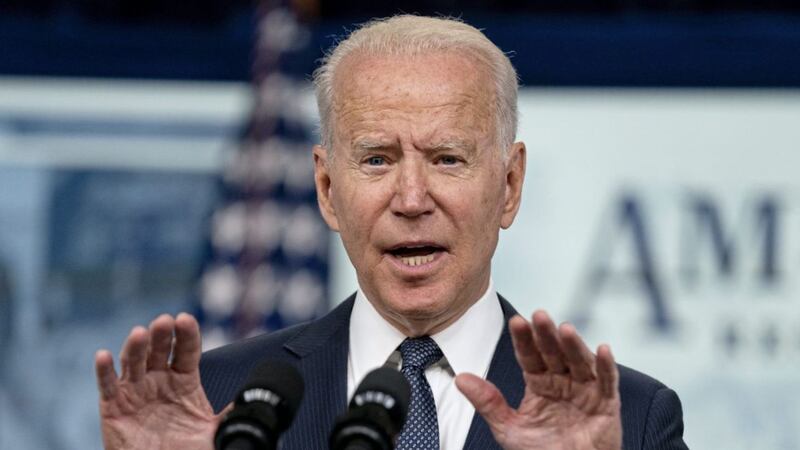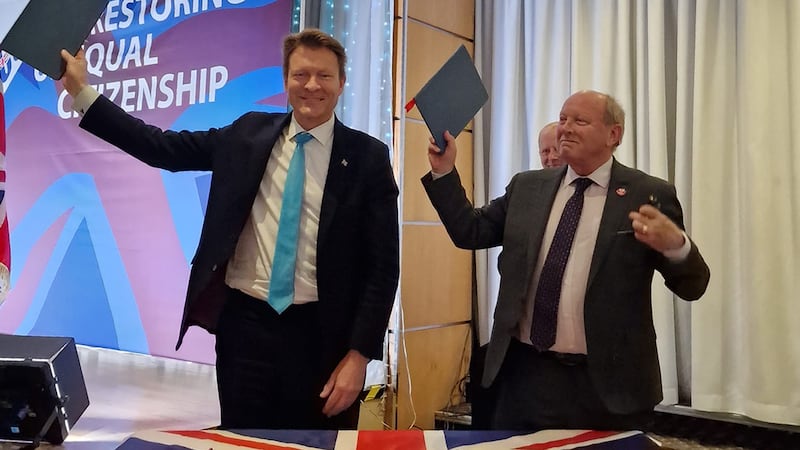If there is one thing which the Irish are good at, it is fighting other people’s battles.
For over 500 years, from the Boyne to the Somme, they have lined up on one side or the other (and often both) to die in someone else’s cause.
They are still taking sides in battles between international powers, this time in the form of the protocol. The nationalist view of the current fiasco is that Boris Johnson is a political rogue, and that if he were knocked down by a bus tomorrow, everything would be fine.
While this is indeed a tempting assumption, it merely offers a platform for hurling insults at Boris rather than providing a framework for analysis.
Unionists describe the problem as denial of their desire to die for Britain (but only in theory) so they side with Boris (but not enough to trust him).
As with most things in life, the truth is more complex. Unionists and nationalists are merely pawns in an international chess game for global power.
It is driven largely by the US, which wants to preserve the EU as a friendly bloc in its attempts to confront the growing economic might of China and, to a lesser extent, Russia.
The last thing the US needs is the UK as a loose cannon outside the EU (and they don’t come much looser than Boris). So the US wants to oust him soon as prime minister and replace the Tories with a Labour government at the next election.
Labour would then reverse Brexit in return for parliamentary support from, or even a coalition with, the Scottish nationalists. However, it is a long term plan and there is no guarantee that Labour could win an argument, never mind an election.
The plan was going well until the DUP boycotted Stormont, leaving Jeffrey Donaldson (unwittingly) manning a roadblock to US foreign policy. To placate the US, Boris is recruiting Baltic states for Nato, while trying to minimally modify the protocol through British legislation (which may be challenged in the courts). Jeffrey could be at the roadblock for a while.
The EU, meanwhile, is dragging out negotiations to pressurise Boris, while Ireland acts as a cheer-leader for the US and (unelected) EU leaders by hurling insults across the Irish Sea. So nationalists and unionists are attacking each other (unknowingly) for or against US economic interests.
Sinn Féin argues that an international agreement cannot be broken, apparently unaware that they supported the IRA’s 30-year war to tear up the 1921 Treaty and, later, the 1985 Anglo-Irish Agreement. Irish governments have also been breaking international law since 2003, by allowing the US troops to use Shannon going to and from illegal wars.
So in a choice between changing an agreement to allow us free access to GB goods, or denying access to placate US interests, nationalists have allied with the US.
President Biden’s misplaced description of his Irish ancestors’ suffering maybe excused as romantic delusion, but his administration’s pro-nationalist stance will not encourage the DUP into the executive and will certainly deepen sectarian divisions here.
Biden shows no understanding of the protocol, but that matters little because his focus now is on Ukraine.
If Johnson’s legislation triggers retaliation from the EU, the one state he can hit back at is the 26 Counties. He could revoke the Common Travel Area, forcing Irish citizens to enter Britain on the same basis as other EU citizens. Ireland might be better dropping the insults and acting as a common broker between the two sides.
This row, which could have been avoided, could fester for years. It differs little from fighting someone else’s war at the Boyne or the Somme. The only variance this time is that those who suffer will be the ordinary people, because the civilian population is always the second casualty in war.
The first is truth. But since simplistic description has taken priority over analysis, truth will not get much of a hearing on either side.









